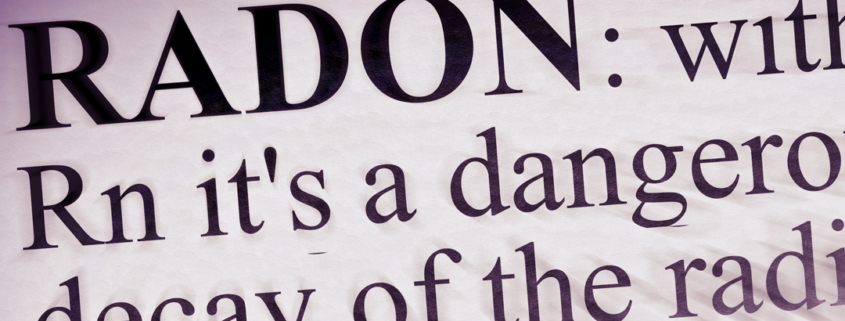Radon and The Facts
Radon is the second leading cause of lung cancer after cigarette smoking. If you smoke and live in a home with high radon levels, you increase your risk of developing lung cancer. Having your home tested is the only effective way to determine whether you and your family are at risk of high radon exposure.
(The information below is directly from the CDC)
Radon is a radioactive gas that forms naturally when uranium, thorium, or radium, which are radioactive metals break down in rocks, soil and groundwater. People can be exposed to radon primarily from breathing radon in air that comes through cracks and gaps in buildings and homes. Because radon comes naturally from the earth, people are always exposed to it.
The U.S. Environmental Protection Agency and the Surgeon General’s office estimate radon is responsible for more than 20,000 lung cancer deaths each year in the U.S. When you breathe in radon, radioactive particles from radon gas can get trapped in your lungs. Over time, these radioactive particles increase the risk of lung cancer. It may take years before health problems appear.
People who smoke and are exposed to radon are at a greater risk of developing lung cancer. EPA recommends taking action to reduce radon in homes that have a radon level at or above 4 picocuries per liter (pCi/L) of air (a “picocurie” is a common unit for measuring the amount of radioactivity).
Your chances of getting lung cancer from radon depend mostly on:
- How much radon is in your home–the location where you spend most of your time (e.g., the main living and sleeping areas)
- The amount of time you spend in your home
- Whether you are a smoker or have ever smoked
- Whether you burn wood, coal, or other substances that add particles to the indoor air
The chances of getting lung cancer are higher if your home has elevated radon levels and you smoke or burn fuels that increase indoor particles.
At Rogue Inspection we offer radon testing to allow you to make critical decisions before you purchase the home of your dreams. Learn more about us today!




I’m glad you talked about how radon’s difficult to identify without a home inspection service. Recently, a neighbor found radon levels on his house, and it made us worry about our safety. We think it’d be smart to test our home, so we’ll be sure to look into that. Thanks for the information on radon and its dangerous effects.